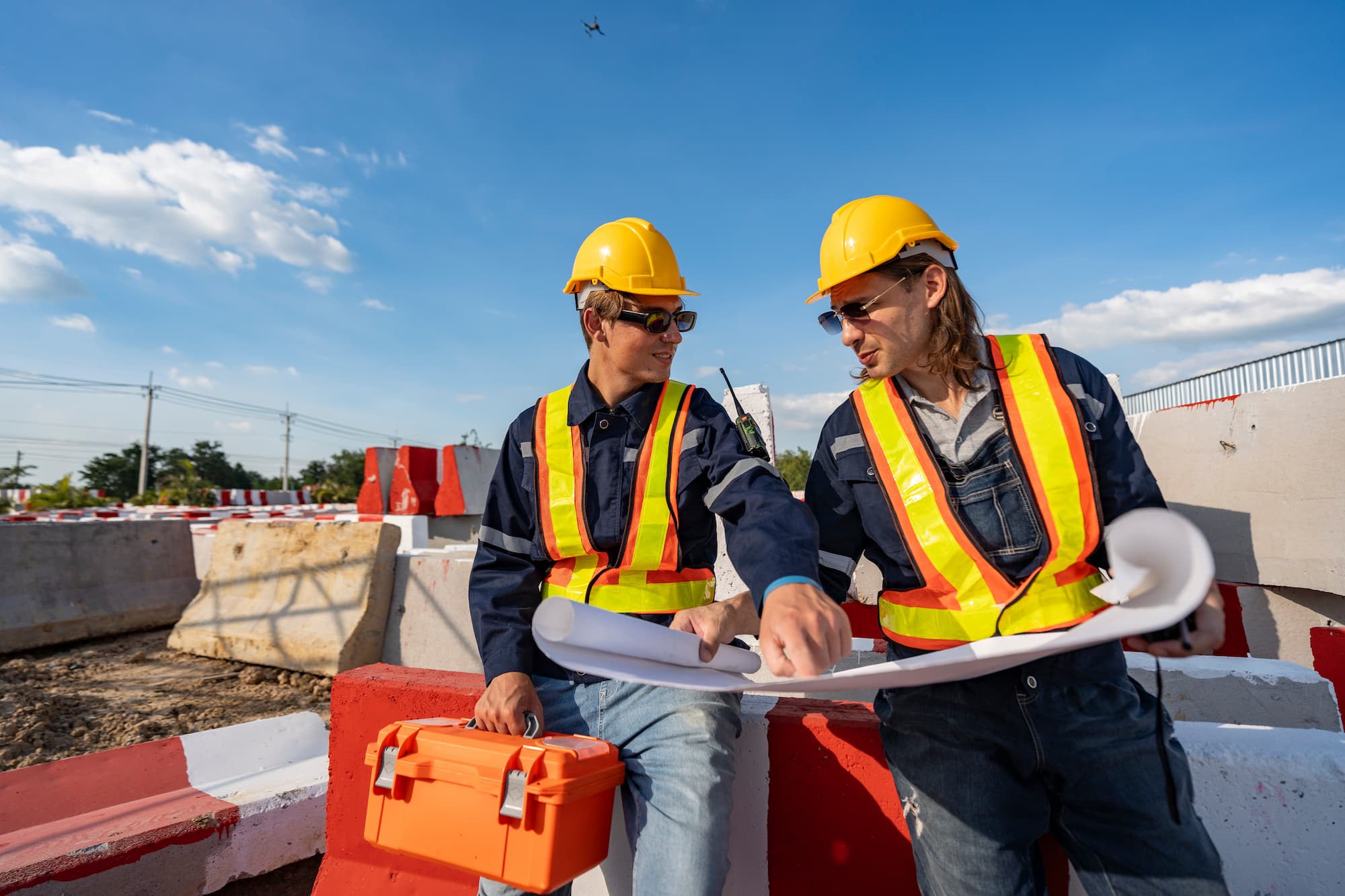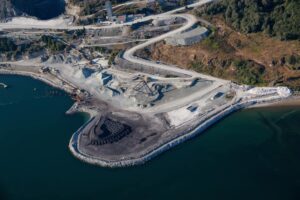Municipal infrastructure is the backbone of every community. Whether it’s clean drinking water, wastewater treatment, or public facilities, cities rely on a complex web of systems to ensure operations run smoothly and safely. At the heart of many of these systems lies process mechanical infrastructure – a network of equipment, piping, and systems responsible for moving, treating, or processing water and other resources.
For municipal clients, upgrading process mechanical systems can feel daunting. Between aging infrastructure, evolving regulations, and budget constraints, it’s often hard to know where to begin. This guide aims to simplify that process and provide insight into what municipalities should know before starting a process mechanical upgrade.
What Is Process Mechanical Work?
Process mechanical services involve the installation, maintenance, and upgrade of mechanical systems used to process liquids, gases, or other materials. In a municipal setting, this often includes:
- Water and wastewater treatment plants
- Pump stations
- Lift stations
- Piping networks
- Chemical dosing systems
- Heating and cooling equipment
- Sludge processing systems
Industra’s Process Mechanical Services are designed to handle all aspects of these critical systems. Our team includes skilled pipefitters, millwrights, welders, and commissioning agents who self-perform fabrication, installation, start-up, and maintenance services.
Why Process Mechanical Upgrades Are a Priority
Aging municipal infrastructure is a national issue. According to the Federation of Canadian Municipalities, over one-third of municipal infrastructure in Canada is in poor or very poor condition. Process mechanical systems are no exception. These systems, often decades old, are struggling to keep up with population growth, changing environmental standards, and increased usage.
Here’s why municipalities can’t afford to delay upgrades:
- Health and Safety Risks: Failing pump systems or outdated filtration units can pose serious risks to public health.
- Compliance Issues: Regulations for water and wastewater treatment are stricter than ever. Upgrades are often necessary to meet compliance.
- Efficiency Gains: Modern systems are more energy efficient and require less maintenance, saving money long-term.
- Climate Resilience: New systems are better equipped to handle the increased stress caused by extreme weather and flooding.
When to Consider an Upgrade
Municipal clients often ask, “When is the right time to upgrade?” While every facility is different, some common signs include:
- Rising maintenance costs
- Frequent equipment failures
- Non-compliance with updated regulations
- Inefficient energy usage
- Capacity limitations
- Planned community growth
The team at Industra has worked with municipalities across Western and Central Canada, providing proactive assessments that identify when and where upgrades are needed.
Steps to a Successful Process Mechanical Upgrade
Upgrading process mechanical systems isn’t a plug-and-play operation. It requires detailed planning, technical skill, and collaborative execution. Here’s a step-by-step look at how municipalities should approach the process.
1. Conduct a Condition Assessment
Before any decisions can be made, conduct a thorough assessment of your current systems. This includes evaluating the age, performance, and maintenance history of each component.
Industra’s EPC Design-Build services allow us to begin this process with in-house engineers who collaborate with your municipal staff. Visit our EPC Design-Build page for more.
2. Define Your Upgrade Objectives
What are you trying to achieve with your upgrade? Objectives could include:
- Increased treatment capacity
- Improved energy efficiency
- System redundancy
- Regulatory compliance
- Safety improvements
Clear objectives help guide design decisions and avoid scope creep.
3. Evaluate Funding Options
Budgeting is one of the most difficult aspects of a municipal upgrade. Luckily, federal and provincial governments in Canada offer infrastructure funding programs for municipalities.
Consider applying for grants under programs such as:
- Investing in Canada Infrastructure Program (ICIP)
- Green Municipal Fund (GMF)
- Clean Water and Wastewater Fund (CWWF)
Working with a contractor like Industra can help you identify and plan for eligible expenses. Our team has experience aligning project scopes with government funding criteria.
4. Choose the Right Delivery Model
The delivery model you choose can impact your project timeline, costs, and risk exposure. Options include:
- Design-Bid-Build: Traditional method, but slow and prone to coordination issues.
- Construction Management: More collaborative, but requires owner involvement.
- Design-Build: Streamlined delivery with single-point accountability.
- EPC (Engineering, Procurement, Construction): Ideal for complex or time-sensitive projects.
At Industra, our EPC/Design-Build model combines speed, quality, and cost control. We self-perform both engineering and construction, offering greater efficiency and fewer communication breakdowns.
5. Plan for Permits and Compliance
Permitting can become a bottleneck if not managed properly. From environmental approvals to safety certifications, the paperwork needs to be in order.
Our safety and quality programs ensure compliance at every step of the project lifecycle. We’re certified with COR, Avetta, ISNetworld, and more.
6. Prepare for Operational Disruptions
Upgrades often mean temporary shutdowns or reduced capacity. This can impact service to residents, especially during peak usage.
Plan early to implement bypass systems, temporary equipment, or phased construction. Industra has experience executing upgrades in live environments, including water and wastewater facilities, without impacting daily operations.
Unique Challenges Municipalities Face
Municipal clients face a range of challenges that set them apart from private sector projects. Understanding these can help tailor a smoother upgrade experience.
Public Accountability
Municipalities must answer to taxpayers. Every dollar spent needs to be justified, especially for high-cost infrastructure.
That’s why transparency and communication are at the heart of our process. We keep stakeholders informed through each stage of the project.
Tight Budgets and Fixed Timelines
Unlike private industry, municipalities often rely on yearly budgets and grant timelines. Delays or budget overruns can affect other community services.
Industra mitigates these risks through strong project management, early planning, and cost forecasting.
Aging Infrastructure and Data Gaps
Many municipal systems were built decades ago, and documentation may be incomplete or outdated. This makes upgrades more complex, especially when connecting to legacy systems.
Our in-house engineers and field teams conduct site assessments to fill in knowledge gaps and identify integration points.
Case Study: Water Treatment Plant Upgrade
Let’s take a look at a real-world example of how Industra helped a municipal client successfully upgrade their infrastructure.
Project: Cove Bay Water Treatment Plant and Reservoir – Bowen Island, BC
Client: Bowen Island Municipality
Scope: Design-build of a new treatment plant and reservoir to meet growing community needs
Challenges:
- Limited site access on the island
- Aging infrastructure and inadequate documentation
- Tight deadline due to seasonal water demand
Solution:
Industra’s self-perform delivery model allowed us to control scheduling, supply logistics, and installation. We used prefabricated systems to streamline on-site work and mitigate environmental risks.
Outcome:
The project was completed on time and within budget, delivering safe and clean water to residents and increasing the community’s long-term infrastructure resilience.
Why Choose Industra for Process Mechanical Upgrades?
With over 100 completed projects and a multi-trade, in-house team, Industra brings a level of experience and self-reliance that municipal clients value. Our services are tailored for remote, complex, and time-sensitive upgrades.
Key Advantages
- Self-Perform Capabilities: No outsourcing to third parties. We handle fabrication, installation, testing, and commissioning in-house.
- Remote Project Expertise: Experienced in hard-to-access regions, including Northern communities.
- In-House Engineering: Integrated design and construction saves time and avoids miscommunication.
- Safety Leadership: Industry-leading safety certifications and procedures.
- Multi-Market Experience: We work with municipalities, First Nations, industrial, and institutional clients.
Relevant Services We Offer
- Water and Wastewater Treatment
- Pump Stations and Lift Stations
- Remote Arctic and Northern Projects
- Institutional Construction
- Industrial Construction
Tips for a Smooth Upgrade Process
To help municipal clients streamline their upgrades, here are some tips based on our experience:
- Involve Your Maintenance Team Early: They’ll know what’s working and what’s not.
- Review Past Failures: Understanding where previous systems fell short helps improve the next design.
- Use a Phased Approach: If budgets are tight, upgrades can be completed in phases.
- Partner with Experienced Contractors: Choose a team with proven experience in municipal infrastructure.
Sustainability and Climate Resilience
Municipalities are placing greater emphasis on climate-resilient infrastructure which process mechanical systems play a central role in. As extreme weather events like flooding and heatwaves become more common, it’s essential that water and wastewater systems are built to adapt.
Process mechanical upgrades can significantly improve a facility’s ability to withstand environmental challenges. Energy-efficient motors and variable frequency drives reduce energy consumption while offering greater control. Solar-powered backup systems ensure operational continuity during grid outages, especially critical in remote or high-risk areas. Integrating SCADA systems and smart monitoring allows teams to detect issues early, optimize system performance, and reduce costly downtime. Meanwhile, flood-resistant control panels help safeguard operations during storm events by protecting key electrical components.
At Industra, we design and deliver process mechanical solutions that align with climate adaptation goals. From smart controls to resilient materials, every upgrade is engineered to perform reliably – today and for decades to come.
Final Thoughts
Process mechanical upgrades are a vital investment in the future of any municipality. These systems quietly power our daily lives, from water treatment to wastewater management. With aging infrastructure and increasing regulatory pressures, proactive planning is more important than ever.
At Industra, we specialize in supporting municipalities through complex upgrades. With our in-house engineering, experienced field teams, and commitment to safety and quality, we deliver process mechanical projects on time and on budget – without compromising performance.
Ready to upgrade your municipal infrastructure? Contact us today to speak with our team about your next process mechanical project.

















